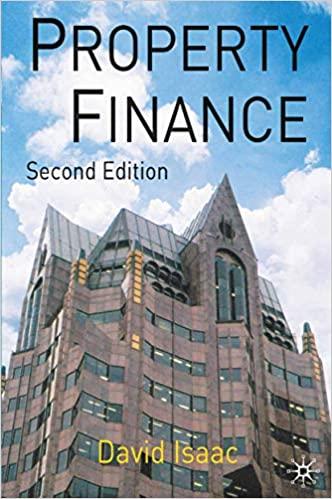Answered step by step
Verified Expert Solution
Question
1 Approved Answer
Profitability Analysis Atlantic and Pacific companies are direct competitors in the Manufacturing industry. You are developing an assessment of the relative profitability of the two
Profitability Analysis
Atlantic and Pacific companies are direct competitors in the Manufacturing industry. You are developing an assessment of the relative profitability of the two companies for dissemination to your clients. Using the financial statements and additional notes, analyze and interpret the relative profitability of each firm using the NOPAT model.
- For both firms, compute net operating profit after tax (NOPAT) for 2020 and net operating assets (NOA) for 2020 and 2019.
- For 2020, compute Return on Net Operating Asset (RNOA) for both firms and disaggregate it into net operating profit margin (NOPM) and net operating asset turnover (NOAT).
- For 2020, compute ROE and infer the non-operating return component of ROE for both firms.
- Based on your answers to a-c above, comment on the profitability and quality of earnings of Atlantic vs. Pacific based on an analysis of the financial statements and accompanying notes.



Footnotes, Accounting Policies, and Additional Information 1. Inventories: Both firms state inventories at lower of cost or market using the moving average cost method. Atlantic: Inventories are stated at lower of cost or market using the average cost method of inventory accounting. Pacific: Inventories are stated at lower of cost or market using the first-in-first out method of inventory accounting. 2. Property, plant, and equipment (PPE): Atlantic: Property is recorded at cost. Property consists of land, builidings, equipment, construction in process and PPE held under capital leases. Depreciation is computed using straight line method over estimated useful lives of the assets, ranging from 2 to 15 years for equipment, and 30 to 40 years for builidngs. Pacific: Property is recorded at cost. Property consists of land, builidings, equipment, construction in process. Depreciation is computed using straight line method over estimated useful lives of the assets, ranging from 5 to 29 years for equipment, and 35 to 45 years for builidngs. 3. Accrued liabilities: Among the accrued liabilities for Firm B are reflected dividends payable of $200 and $250 million of dividends payable for 2020 and 2019 respectively. 4. Leases: Both firms carry substantial leases which are carried as operating leases. Firm A classifies a small portion of its total leases as capital leases while Firm B treats all its leases as operating. 5. Common Stock: Atlantic: Commons Stock, par value $0.50; authorized: 15 million shares; issued 8,456 million shares at reporting date 2020 and 8,345 million shares at reporting date 2016; Outstanding 7,864 at reporting date 2019 and 8,564 at reporting date 2020. Pacific: Common Stock, par value $0.25; authorized: 10 million shares; issued and outstanding: 3,504 million shares at reporting date 2020 and 2,580 million shares at reporting date 2019 6. Marginal \& statutory tax rates: The marginal and statutory tax rates for both firms is 22%. 7. Market prices: The closing market price at reporting date (current year) forAtlantic was $43.55 and for Pacific was $15.40. Footnotes, Accounting Policies, and Additional Information 1. Inventories: Both firms state inventories at lower of cost or market using the moving average cost method. Atlantic: Inventories are stated at lower of cost or market using the average cost method of inventory accounting. Pacific: Inventories are stated at lower of cost or market using the first-in-first out method of inventory accounting. 2. Property, plant, and equipment (PPE): Atlantic: Property is recorded at cost. Property consists of land, builidings, equipment, construction in process and PPE held under capital leases. Depreciation is computed using straight line method over estimated useful lives of the assets, ranging from 2 to 15 years for equipment, and 30 to 40 years for builidngs. Pacific: Property is recorded at cost. Property consists of land, builidings, equipment, construction in process. Depreciation is computed using straight line method over estimated useful lives of the assets, ranging from 5 to 29 years for equipment, and 35 to 45 years for builidngs. 3. Accrued liabilities: Among the accrued liabilities for Firm B are reflected dividends payable of $200 and $250 million of dividends payable for 2020 and 2019 respectively. 4. Leases: Both firms carry substantial leases which are carried as operating leases. Firm A classifies a small portion of its total leases as capital leases while Firm B treats all its leases as operating. 5. Common Stock: Atlantic: Commons Stock, par value $0.50; authorized: 15 million shares; issued 8,456 million shares at reporting date 2020 and 8,345 million shares at reporting date 2016; Outstanding 7,864 at reporting date 2019 and 8,564 at reporting date 2020. Pacific: Common Stock, par value $0.25; authorized: 10 million shares; issued and outstanding: 3,504 million shares at reporting date 2020 and 2,580 million shares at reporting date 2019 6. Marginal \& statutory tax rates: The marginal and statutory tax rates for both firms is 22%. 7. Market prices: The closing market price at reporting date (current year) forAtlantic was $43.55 and for Pacific was $15.40
Step by Step Solution
There are 3 Steps involved in it
Step: 1

Get Instant Access to Expert-Tailored Solutions
See step-by-step solutions with expert insights and AI powered tools for academic success
Step: 2

Step: 3

Ace Your Homework with AI
Get the answers you need in no time with our AI-driven, step-by-step assistance
Get Started


